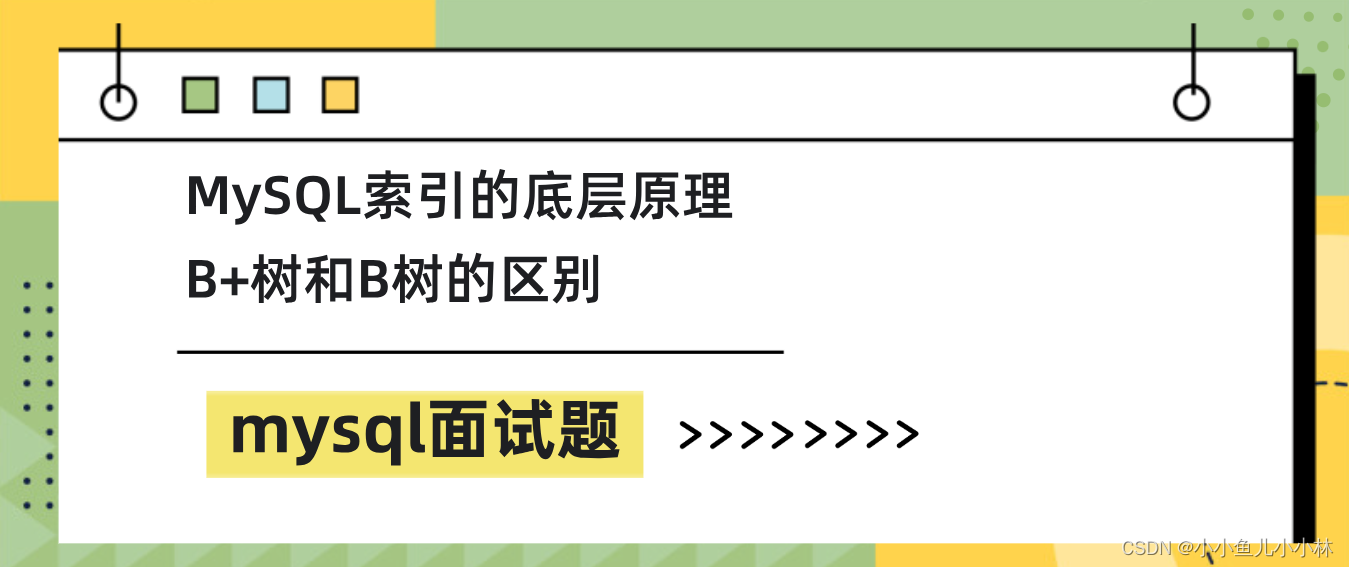
This article focuses on interviews. In interviews, you only need to answer the key points. You do not need to have a very in-depth answer to the framework. If you want to cope with the interview, it is enough. Grasp the key points.
Interviewer: How is the underlying principle of MySQL index implemented?
The underlying implementation of MySQL index is implemented through B+ tree. B+ tree is a multi-fork balanced search tree, which is characterized by its ability to efficiently support data insertion, deletion and search operations.
In MySQL, each index corresponds to a B+ tree. The nodes of the B+ tree are composed of index keys and pointers to the next-level nodes. The leaf nodes store the complete index keys and corresponding data row addresses.
When new data is inserted into the table, MySQL will insert the data into the appropriate location in the corresponding B+ tree according to the definition of the index. If the index already exists, MySQL will update the value of the corresponding index key.
When performing a query operation, MySQL will search on the B+ tree based on the query conditions. The search process starts from the root node, and based on the size comparison of the index keys, it is decided to continue searching to the left child node or the right child node until a leaf node that meets the query conditions is found.
For range queries, MySQL can take advantage of the orderliness of the B+ tree for optimization. For example, you can avoid the overhead of a full table scan by using a range scan on the index keys.
In addition, MySQL also supports multi-column indexes. Multi-column indexes actually combine the values of multiple columns as index keys, which can improve query efficiency.
Key point: The underlying principle of MySQL index is realized through B+ tree. By using B+ tree, it can efficiently support data insertion, deletion and search operations, and improve the efficiency of query.